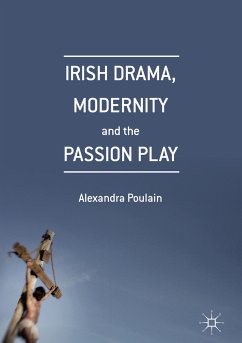
The Late Harold Pinter (eBook, PDF)
Political Dramatist, Poet and Activist
Versandkostenfrei!
Sofort per Download lieferbar
64,95 €
inkl. MwSt.
Weitere Ausgaben:

PAYBACK Punkte
32 °P sammeln!
Examines Pinter's often overlooked work in alternative media, from poetry to speeches
Draws extensively on little-accessed archival material to bring further insights into Pinter's creative process
Views Pinter's political output through the lens of affect
Dieser Download kann aus rechtlichen Gründen nur mit Rechnungsadresse in A, B, BG, CY, CZ, D, DK, EW, E, FIN, F, GR, HR, H, IRL, I, LT, L, LR, M, NL, PL, P, R, S, SLO, SK ausgeliefert werden.












